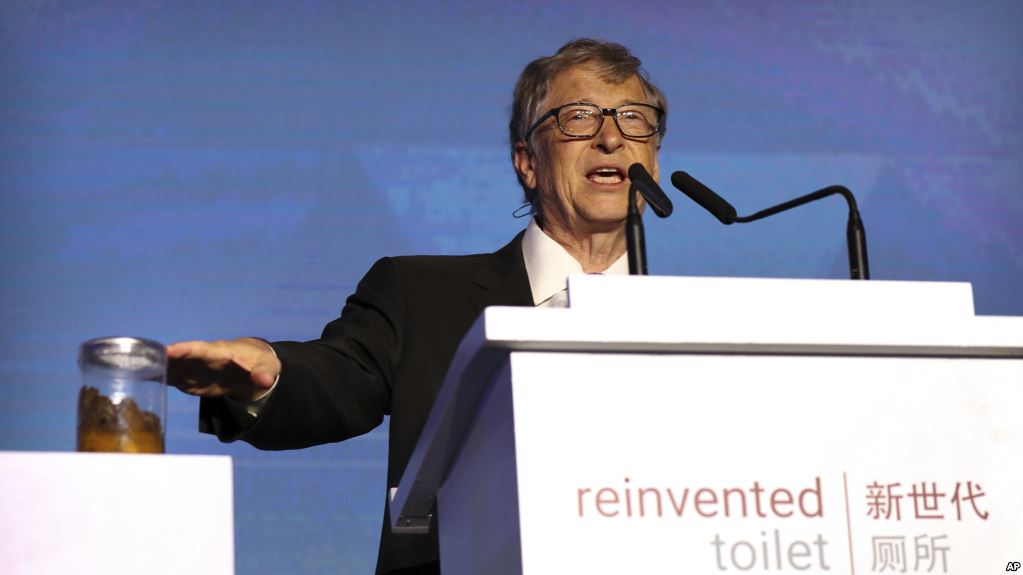On Tuesday, Bill Gates addressed a large audience in Beijing, China with a jar of poop. The surprise was meant to throw some light on the need to reinvent one of the most basic necessities of our lives- toilet. The event was Reinvented Toilet Expo in Beijing.
Majority of the world’s population lives without a proper and clean sanitation system. In 2015, the World Health Organization estimated that just 39% of the world’s people were using a “safely-managed” lavatory, whether it be a toilet or a decently clean latrine. Many people defecate in open. Being exposed to faeces can develop a range of diseases in the human body.
“It’s good to be reminded, in there could be over 200 trillion rotavirus particles, 20 billion Shigella bacteria, and 100,000 parasitic worm eggs,” Gates told the crowd, which had gathered in Beijing, China for an event called the Reinvented Toilet Expo.
These microscopic organisms, like E.coli, Streptococcus, Hepatitis A and E, can cause many infectious diseases in adults and mostly, kids like diarrhoea and pneumonia.
“When you think about things that are basic, right up there with health and enough to eat, I think having a reasonable toilet certainly belongs on that list,” Gates said.
Illness from poor sanitation costs the world over $223 billion per year in lost wages and extra healthcare.
Reinventing Toilets
The Bill & Melinda Gates Foundation has invested $200 million of investment seven years ago in 2011, for “Reinvent the Toilet Challenge”. They funded money to universities around the world to develop a next-generation toilet. The goal is to develop a waste-processing system that doesn’t need to be hooked up a typical sanitation and sewer grid.
The new systems that have been created with those grants turn what we put into the toilet into fertilizer, energy, or recycled water, some of which is good enough to drink.
The Gates Foundation is planning to invest a $200 million more into research to fund ways to deal with the human waste at the source.
The successful products are being tested in India, Africa, and China.
One of the first new toilets is the solar-powered Eco-san system, pictured below. Based on technology developed at Cal Tech, the Eco-san extracts clean water from human waste and reuses it for future flushing.
The University of South Florida’s NewGenerator treatment system also runs on solar energy and can be hooked up to any existing toilet. It uses a nano-membrane filter (kind of like a coffee filter) with faeces-digesting anaerobic bacteria inside to filter clean water out of the waste.
Another model by a Swiss firm, Helbling, called HTClean Toilet, uses high pressure and temperature to separate water and solids that are not toxic from human waste.
These products have good efficiency but they are not yet feasible for homes. For now, the new toilets are going to be used at schools, apartment complexes, and community bathroom areas, Gates said.
“When you think about things that are basic, right up there with health and enough to eat, I think having a reasonable toilet certainly belongs on that list,” Gates said.

